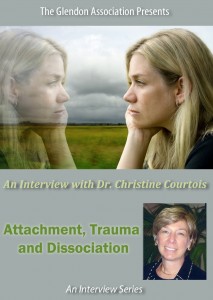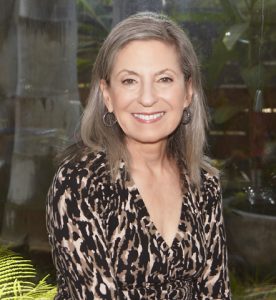Dr. Christine Courtois on the Concept of The Voice
Dr. Christine Courtois talks about the concept of the critical inner voice.
The following transcript contains part of an exclusive interview with Dr. Lisa Firestone and Dr. Christine Courtois.
CC I think in the field of trauma that the idea of voice and internalized voice is very important and it’s had different terminology. Certainly “identification with the aggressor” being one of them in more analytic terms. But this is a term, you know, it reminded me of Milton Erikson in a sense – my voice goes with you. And that I know that I’ve gone back to that and clients often refer to the voice inside them. And they don’t necessarily need to be a dissociative or a DID person. But they identify that there’s that voice that’s there. So I think that it’s been a very important contribution because maybe that’s what’s being played out in how the individual is trying to cope and that voice is there harassing them or hounding them. Or they’re giving them internalized negative messages that are not in their environment anymore. But they’re well embedded in their internal landscape.
Order the Full DVD Interview:
 Attachment, Trauma and Dissociation
Attachment, Trauma and Dissociation
In this DVD, Dr. Christine Courtois draws upon her expertise in the field of trauma to discuss a variety of trauma related topics. She begins by talking about her work with survivors of childhood trauma, including the roles of attachment and dissociation. Dr. Courtois discusses the concept of the ‘Critical Inner Voice’ and Voice Therapy. She addresses how families can be a source of trauma, citing that statistically speaking “the most dangerous people to children are their intimates.” Dr. Courtois places an important emphasis on the extent to which individuals often minimize complex trauma, essentially saying of their abuse “Aw, it wasn’t so bad.” She discusses trauma bonding, repetition of trauma, and the treatment of violent individuals. Finally, Dr. Courtois offers some optimal parenting strategies “to promote the child’s self esteem” including building resilience and repairing negative experiences so that the child feels responded to and cared about.
Read More from Dr. Christine Courtois
 Christine A. Courtois, PhD, ABPP is a Psychologist in independent practice in Washington, DC where she is the principal of Courtois & Associates, PC. She received her PhD from the University of Maryland in College Park, in 1979. Dr. Courtois is immediate Past-President of Division 56 (Psychological Trauma) of the American Psychological Association and has recently published a revision of Healing the Incest Wound: Adult Survivors in Therapy (2010, 1988) and Treating Complex Traumatic Stress Disorders: An Evidence-Based Guide (2009) co-edited with Dr. Julian Ford. Her new book, The Treatment of Complex Trauma: A Sequenced, Relationship-Based Approach, co-authored with Dr. Ford, will be published by Guilford later this year. She is currently co-editing another book with him on the treatment of complex traumatic stress disorders in children (Guilford) and co-editing a book with Drs. Donald Walker and Jamie Aten on trauma and spirituality (American Psychological Association Books) to be published in 2013. She has authored two other books,Recollections of Sexual Abuse: Treatment Principles and Guidelines (1999) and Adult Survivors of Child Sexual Abuse: A Workshop Model (1993). Dr. Courtois has published numerous articles and chapters on related topics. She is a Founding Associate Editor of the new APA Division 56 journal, Psychological Trauma: Theory, Research, Practice, & Policy. She is Co-Founder (in 1990, with Joan Turkus, MD) of The CENTER: Posttraumatic Disorders Program, Washington, DC where she served as Clinical and Training Director for 16 years.
Christine A. Courtois, PhD, ABPP is a Psychologist in independent practice in Washington, DC where she is the principal of Courtois & Associates, PC. She received her PhD from the University of Maryland in College Park, in 1979. Dr. Courtois is immediate Past-President of Division 56 (Psychological Trauma) of the American Psychological Association and has recently published a revision of Healing the Incest Wound: Adult Survivors in Therapy (2010, 1988) and Treating Complex Traumatic Stress Disorders: An Evidence-Based Guide (2009) co-edited with Dr. Julian Ford. Her new book, The Treatment of Complex Trauma: A Sequenced, Relationship-Based Approach, co-authored with Dr. Ford, will be published by Guilford later this year. She is currently co-editing another book with him on the treatment of complex traumatic stress disorders in children (Guilford) and co-editing a book with Drs. Donald Walker and Jamie Aten on trauma and spirituality (American Psychological Association Books) to be published in 2013. She has authored two other books,Recollections of Sexual Abuse: Treatment Principles and Guidelines (1999) and Adult Survivors of Child Sexual Abuse: A Workshop Model (1993). Dr. Courtois has published numerous articles and chapters on related topics. She is a Founding Associate Editor of the new APA Division 56 journal, Psychological Trauma: Theory, Research, Practice, & Policy. She is Co-Founder (in 1990, with Joan Turkus, MD) of The CENTER: Posttraumatic Disorders Program, Washington, DC where she served as Clinical and Training Director for 16 years.










Leave a Reply
You must be logged in to post a comment.